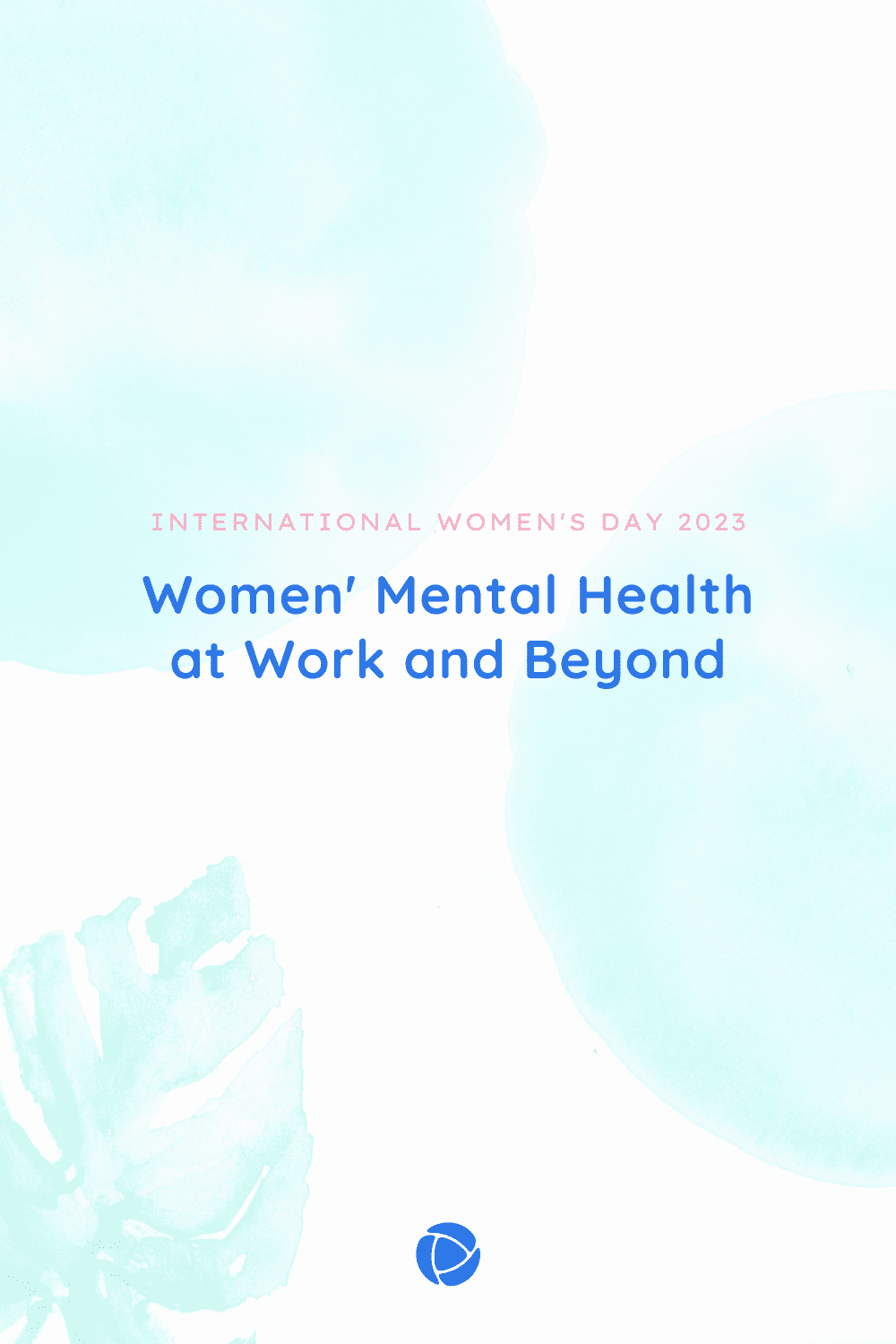One in five women in the UK has a common mental health condition like anxiety or depression.¹ To celebrate International Women’s Day, we explored women’s mental health both within and outside the workplace.
Even though women might be more likely to open up about their mental health and be more prepared to access support, they are also more susceptible to socio-economic factors that increase the risk of mental health conditions. These factors include being more likely than men to be carers, live in poverty, and experience physical or sexual abuse and violence.¹ Women in minority race and LGBTQ+ communities are even more likely to experience these factors.
53% of women who have mental health problems have experienced abuse.²
To explore women’s experiences around mental health further, we spoke to Inclusion Partner Chelsey Sprong from our partner organisation, Beazley.
She explained her belief that “women are socialised early-on to consider themselves the ‘more emotional’ of the sexes but not necessarily how to handle that emotion, or even having those emotions validated and respected. … As a result of those emotions being invalidated, women could be more at risk of hiding how they are really feeling.” It’s important to not make assumptions about someone’s mental health based on their gender or stereotypes. The language and culture surrounding how we talk about women’s mental health has an enormous impact on the support available and whether they reach out.
Just like in our conversations, there is often a gender bias seen in research where significant differences in how conditions develop, present and respond to treatment are ignored.³ This can lead to women being more likely to get the wrong diagnosis or treatment, with potentialy disastrous consequences. Learning more about women’s mental health can help us to provide the right support and make sure that people reach out.
Chelsey added “We know a lot about anxiety and depression and are starting to understand more about women-specific issues such as the menopause, but … women’s mental health overall is an underdeveloped area of research that we’d benefit from more insight into”.
How can we account for this in the workplace?
In a gender-diverse team, it’s important for managers to know how to support everyone – not only for the benefit of employees, but for the organisation overall. We asked Chelsey what she thought organisations should consider when trying to priortise mental health in the workplace.
“Organisations and managers need to understand that people are our greatest resource, and if people cannot bring their authentic self to the workplace, we’re not tapping into that resource effectively. … Let’s start to open up the conversation on the mental load women are carrying and look for ways that the modern workplace could alleviate some of this.”
Having open conversations about mental health is important in creating an open environment for everyone. Chelsey says it’s also important to “break the taboo around women-specific topics like the menopause, menstruation and the connection to mental health.” As well as this, treating all genders equally and being concious of our own bias will help to break down barriers to support.
By providing an effective wellbeing strategy and support system for all employees that can be tailored for each individual, managers can make sure that everyone receives the right support at the right time.
¹ Mental Health Foundation – Women and Mental Health, 2020
² Agenda – Hidden Hurt Report, 2016
³ Progress in Mind, Psychiatry and Neurology Research Centre – Addressing the gender bias in mental health research, 2020

